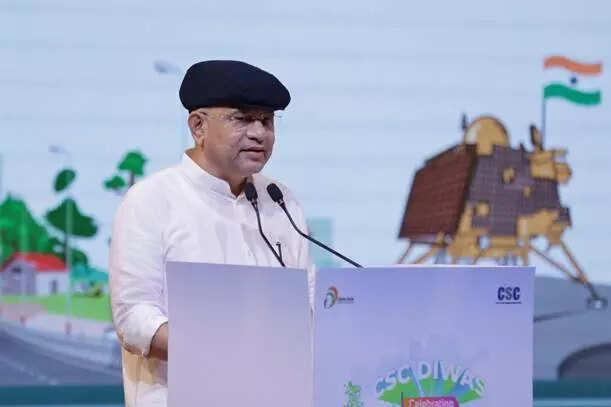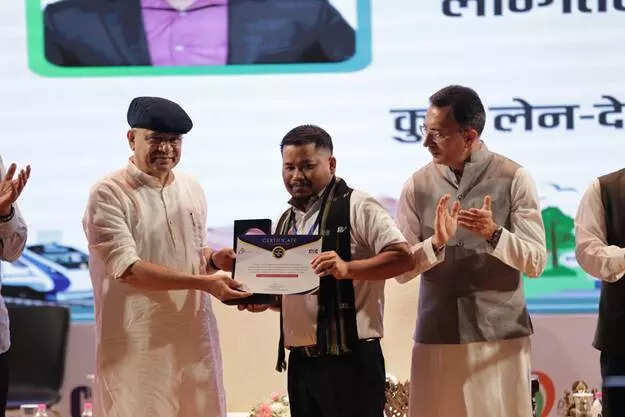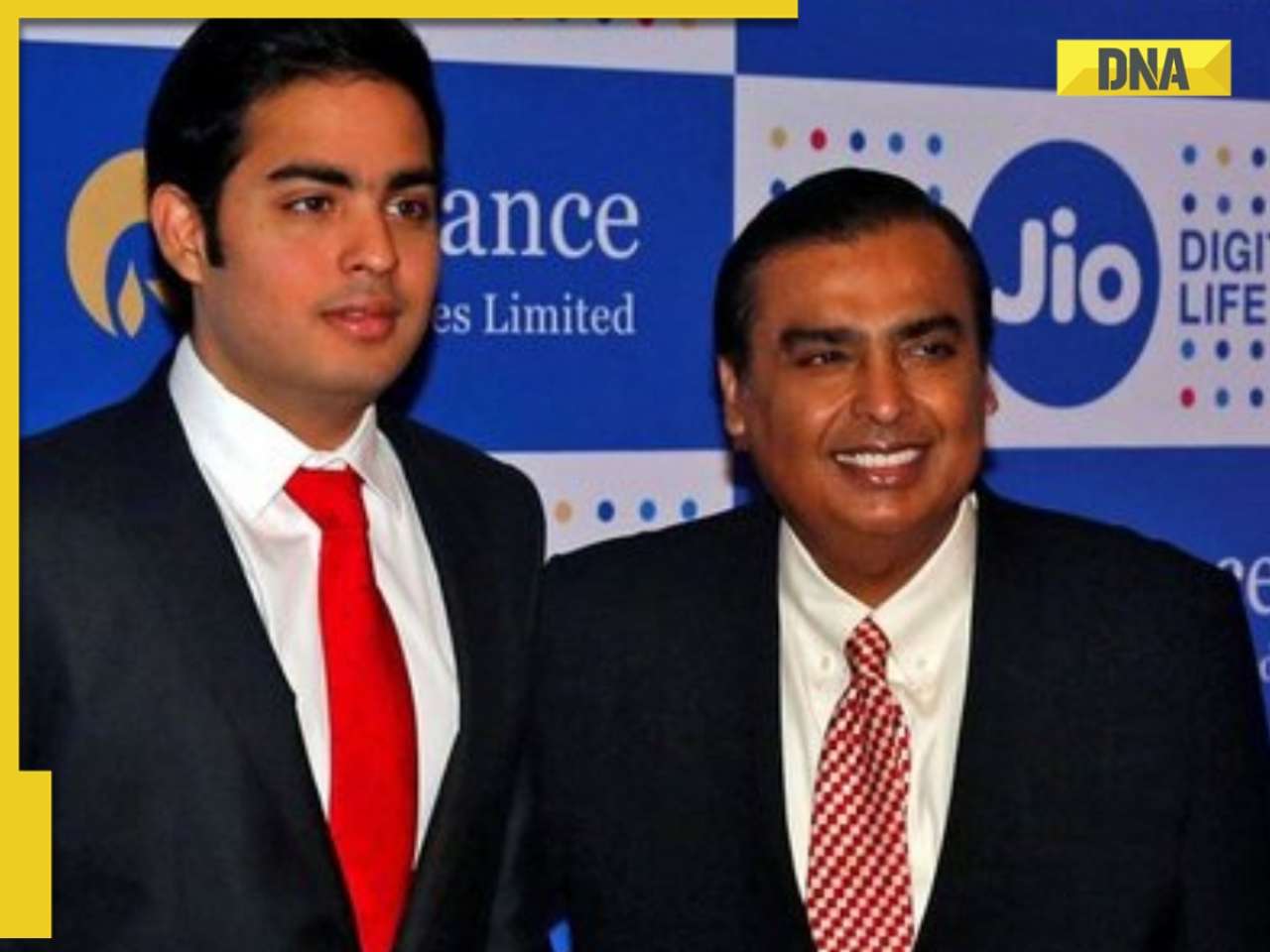Free AI Training for 10 Lakh Citizens: A Cornerstone of Digital India's 10th Anniversary, ETGovernment

Marking a decade of the Digital India initiative, Common Services Centre – Special Purpose Vehicle (CSC SPV), under the Ministry of Electronics and Information Technology (MeitY), has launched a transformative effort to train 10 lakh citizens in Artificial Intelligence, with special emphasis on Village Level Entrepreneurs (VLEs).
The announcement came during CSC Diwas celebrations held at the Yashobhoomi Convention Centre in New Delhi on July 16, 2025.
Delivering the keynote address, Minister for Electronics and Information Technology Ashwini Vaishnaw praised the dedication of VLEs in bridging the urban-rural digital divide.
Reflecting on the country’s extraordinary digital trajectory, he said, “VLE brothers and sisters across the country have set a remarkable example by delivering the benefits of Digital India to every citizen. When the world questioned how a tea seller or a vegetable vendor could use digital payments, today that dream has come true—UPI payments have surpassed Visa transactions. This is the strength of 1.4 billion Indians.”
Vaishnaw noted that CSCs now reach nearly 90 percent of India’s villages, describing the network as the most effective grassroots digital infrastructure in the country. He highlighted the stories of VLEs like Manjulata from Odisha’s Mayurbhanj district and Rose Angelina from Meghalaya’s East West Khasi Hills, who have overcome difficult circumstances to bring digital access and services to underserved communities.
“In the scenic but remote villages of Meghalaya, Rose Angelina Kharsyntiew has scripted a digital revolution. Through her centre in Mairang, she is not only delivering essential services but also fostering transformation and community development.”
Vaishnaw announced that AI training will be provided free of cost to one million individuals, beginning with the VLEs. He also encouraged VLEs to begin offering railway ticketing services through IRCTC and committed to initiating dialogue with chief ministers across states to integrate state-level IT services with the CSC ecosystem.

Minister of State for Electronics and Information Technology Jitin Prasada underlined the scale and speed of CSC expansion, linking it directly to the vision of Digital India. He recalled that when the initiative began in 2014, there were only 83,000 CSCs operational. Today, that number stands at nearly 5.5 lakh, a nearly sevenfold increase within a decade.
He emphasized that CSCs have become instrumental in extending governance, finance, education, and healthcare services to the most remote corners of the country. Noting the integration of Primary Agriculture Credit Societies (PACS) with CSCs, Prasada applauded the role of more than 74,000 women VLEs who are redefining empowerment at the village level.
Reflecting on the importance of staying technologically relevant, Prasada remarked, “We are now in the era of Artificial Intelligence, and it is advancing rapidly. With time, we must use new technologies to bring positive change in people’s lives and empower them.”
He also stressed the need for enhancing cybersecurity awareness, promoting capacity building, and expanding services in agriculture, health, and education sectors. He proposed enabling VLEs to offer additional services, such as Update Client Lite and access to state government schemes, to improve service penetration and raise VLE incomes.
Launched in 2009 under MeitY, CSC SPV has evolved into one of the world’s largest rural digital service delivery ecosystems. Each centre is operated by a local entrepreneur, known as a Village Level Entrepreneur, who provides a wide array of citizen-facing services. These include Aadhaar updates, PAN and passport services, insurance and banking, telemedicine, legal aid, online education, agricultural support, and utility bill payments.
Addressing the gathering, CSC SPV Managing Director and CEO Sanjay Rakesh said, “With CSC, there is no longer any need to visit cities to access essential services. In the remotest parts of India, CSC centres are providing both government-to-citizen and business-to-citizen services at people’s doorsteps.”
He noted that CSC represents a new paradigm of digital inclusion, adding, “In the past ten years, CSC has emerged as a model of Digital India that embodies the vision of inclusive and accessible governance. With the Prime Minister’s mantra of ‘Sabka Saath, Sabka Vishwas,’ we are determined to build an even more empowered future.”
As part of the CSC Diwas celebrations, a two-day event was organized in Delhi from July 15 to 16. IT Secretaries from all states met at Bharat Mandapam to deliberate on the role of CSCs in shaping the future of rural e-governance. Discussions focused on digital empowerment, the integration of emerging technologies, and strengthening service delivery at the last mile.
From July 1 to 15, CSC centres across India celebrated the occasion with active public participation. Top-performing VLEs were felicitated for their contributions to digital inclusion and innovation.
The Digital India initiative, launched in 2015 by Prime Minister Narendra Modi, has reshaped public service delivery by harnessing the power of digital technology. Over the past decade, it has significantly expanded internet penetration, enabled financial inclusion, and made government services more accessible to citizens across geographies.
India has since emerged as the world’s third-largest digital economy, with CSCs playing a critical role in this transformation. By bringing services like telemedicine, digital payments, e-commerce, and e-learning to villages, CSCs have not only reduced dependency on urban infrastructure but also catalysed new forms of rural entrepreneurship.
In Vaishnaw’s words, “The story of CSC is the story of India’s transformation—from the lanes of Mayurbhanj to the hills of Meghalaya, from 83,000 centres to over 5.5 lakh. This is Digital India in action.”

You may also like...
Diddy's Legal Troubles & Racketeering Trial

Music mogul Sean 'Diddy' Combs was acquitted of sex trafficking and racketeering charges but convicted on transportation...
Thomas Partey Faces Rape & Sexual Assault Charges

Former Arsenal midfielder Thomas Partey has been formally charged with multiple counts of rape and sexual assault by UK ...
Nigeria Universities Changes Admission Policies

JAMB has clarified its admission policies, rectifying a student's status, reiterating the necessity of its Central Admis...
Ghana's Economic Reforms & Gold Sector Initiatives

Ghana is undertaking a comprehensive economic overhaul with President John Dramani Mahama's 24-Hour Economy and Accelera...
WAFCON 2024 African Women's Football Tournament

The 2024 Women's Africa Cup of Nations opened with thrilling matches, seeing Nigeria's Super Falcons secure a dominant 3...
Emergence & Dynamics of Nigeria's ADC Coalition

A new opposition coalition, led by the African Democratic Congress (ADC), is emerging to challenge President Bola Ahmed ...
Demise of Olubadan of Ibadanland
Oba Owolabi Olakulehin, the 43rd Olubadan of Ibadanland, has died at 90, concluding a life of distinguished service in t...
Death of Nigerian Goalkeeping Legend Peter Rufai

Nigerian football mourns the death of legendary Super Eagles goalkeeper Peter Rufai, who passed away at 61. Known as 'Do...




